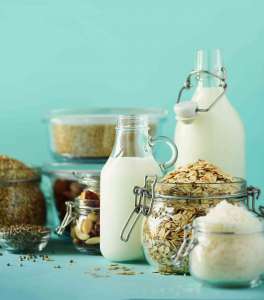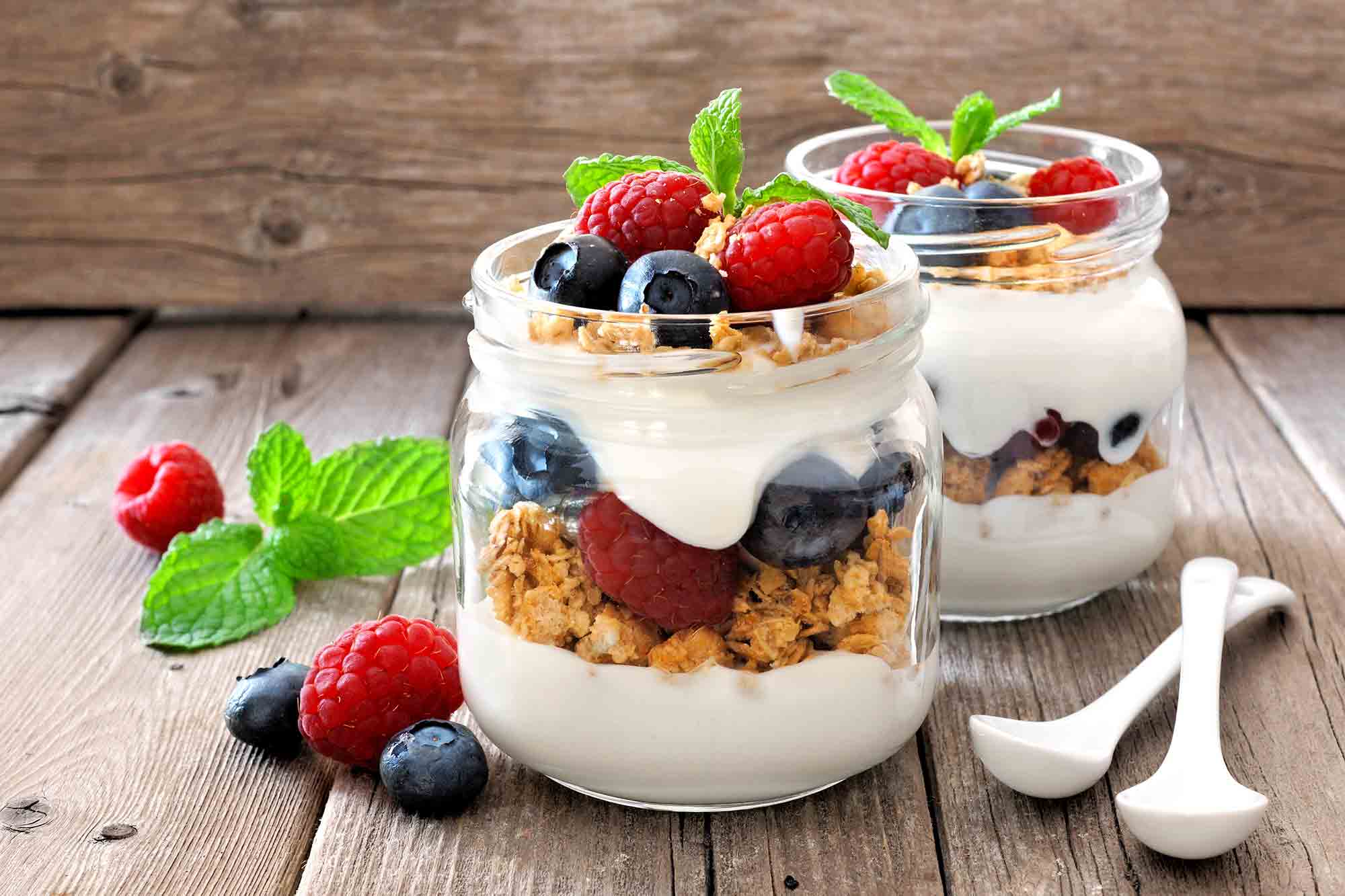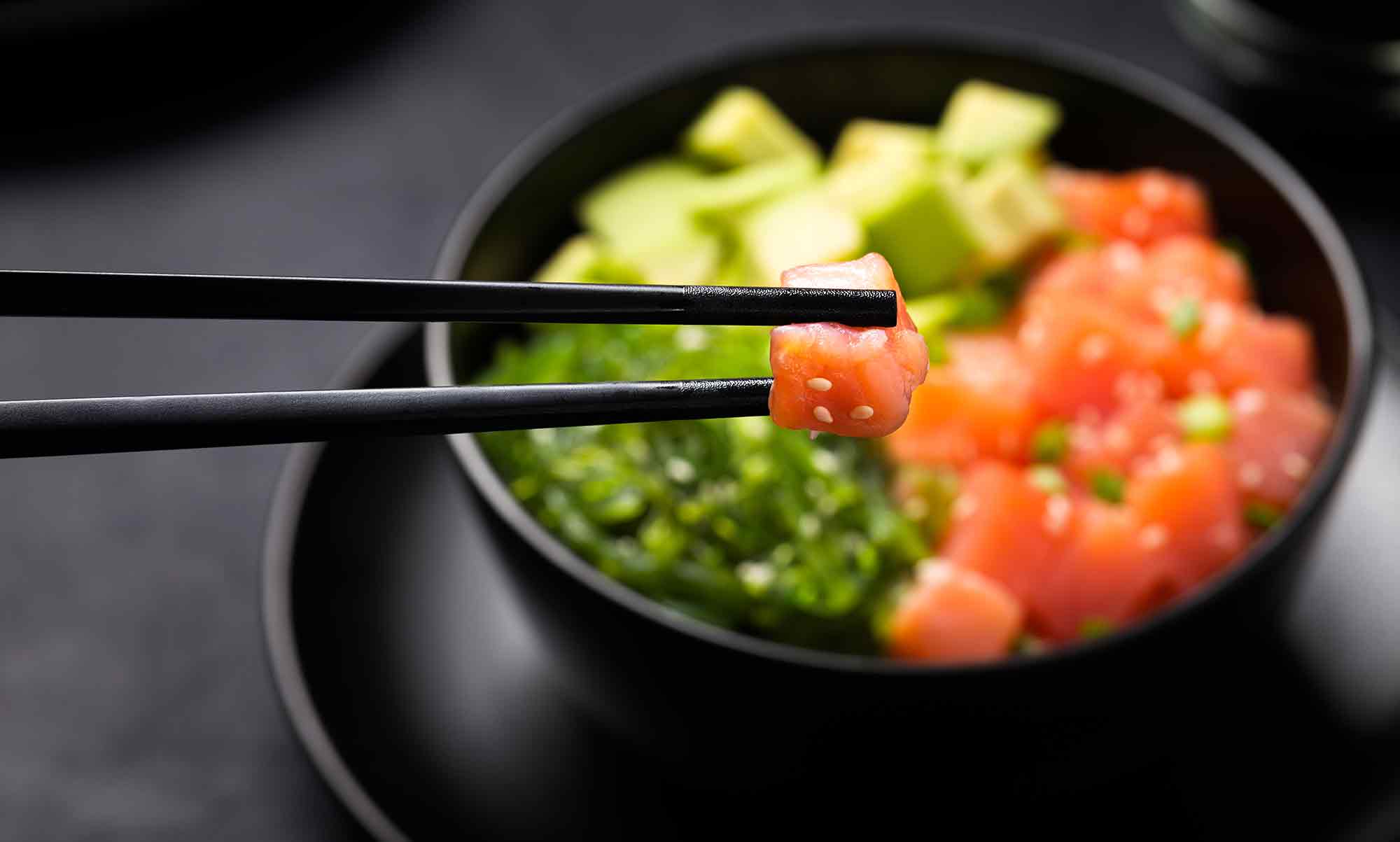Parfaits are delicious, but with all the dairy and refined sugar, they aren’t always the healthiest dessert option. But with a few substitutions, they can be.
If you were wondering if there is, in fact, a day for everything, Monday, November 25 should be proof positive that you’re right. Yes, Nov. 25 is National Parfait Day, and who would deny that the many-layered staple of group dining options — from airport grab-and-goes to conference buffets — is worthy of having its own day. It can be scrumptious; after all, the name literally is French for “perfect.”
What’s not quite so perfect is the dairy and sugar content of most of these confections. Some of your attendees may be watching their waistlines, while others may have dietary restrictions, allergies, or lactose intolerances that put that “perfect” dessert out of their reach. But it doesn’t have to be that way.
One way to make parfaits a little healthier is, instead of the usual full-fat, lactose-laden cow’s milk, try substituting a milk alternative such as:
- Rice milk, made from brown or white rice and water, is your best bet if you have attendees with dairy, soy, nut or gluten allergies. It has about the same number of calories as cow’s milk, double the carbs, and less protein and fat than regular dairy options. However, it also has a high glycemic index, meaning it can spike blood sugar levels, making it a less-than-optimal option if you have attendees with diabetes.
- Soymilk has a mild and creamy taste and protein profile similar to cow’s milk, with only about half of regular milk’s fat, carbs, and calories. Like other soy products, however, soymilk can trigger reactions from hives and wheezing to (rare but potentially life-threatening) anaphylaxis in those who are allergic to it.
 Almond milk also contains significantly fewer calories, carbs and half the fat of cow’s milk, though it also has less protein. It also has a mildly sweet and nutty flavor, which can mesh well with a parfait. Again, nut allergies and intolerances are common, so be sure to alert your attendees if you are using a milk derived from nuts (or any other common allergen).
Almond milk also contains significantly fewer calories, carbs and half the fat of cow’s milk, though it also has less protein. It also has a mildly sweet and nutty flavor, which can mesh well with a parfait. Again, nut allergies and intolerances are common, so be sure to alert your attendees if you are using a milk derived from nuts (or any other common allergen).- Cashew milk, another nut-based option, tends to be rich, sweet and creamy, with a third of the calories and half the fat of cow’s milk. It also has low protein and carb levels.
- Macadamia milk, made from water and macadamia nuts, may be harder to come by, but it is a bit richer and smoother than the other nut-milk options. Like the others, it is lower in calories, fat, protein and carbs than cow’s milk.
- Quinoa milk, another relative newcomer to the market, is gluten-free and loaded with high-quality protein. With a similar carb profile to cow’s milk, it contains fewer calories, fat and protein.
- Coconut milk, made from water and coconut meat, has become ubiquitous in most grocery stores and is popping up more and more in recipes. It is a little sweet, fairly creamy, a little coconutty (but not overwhelmingly so), and contains significantly less fat, calories, proteins, and carbohydrates than cow’s milk.
- Hemp milk, made from seeds of the marijuana-related-but-non-high-inducing hemp plant, tends to be a little waterier than some of the other options, though it also has a sweet, nutty flavor. While it has a similar fat content to cow’s milk, it is lower in calories, proteins and carbs.
- Oat milk can be just oats and water, but it also can include gums, oils and salt to give it a palatable texture. Like the other substitutes, it tends to be sweet and mild, and, while it has about the same calories as cow’s milk and can have up to twice the carbs, it is high in fiber, while also lower in protein and fat than regular milk.
- Pea protein milk, made from split yellow peas, is high in protein, dairy-, soy-, nut- and gluten-free, and reportedly tastes a little like almond milk, only a bit creamier.
A couple of caveats: These cow-milk substitutes can contain added sugars meant to improve their taste and texture. Also, they often can be more expensive than cow’s milk, and some may trigger reactions in those with gluten, nut or soy allergies or intolerances.
If you want to try out a few dairy-free parfait recipes in your own test kitchen, here are 17 parfaits that sound like they could cause a few OMGs among even the most discerning of your participants’ palates.



